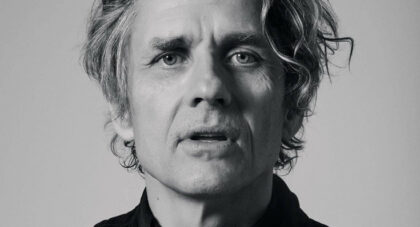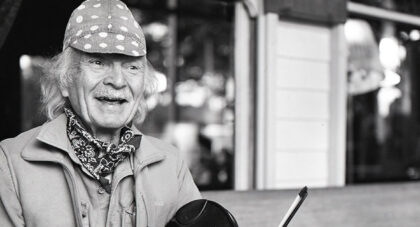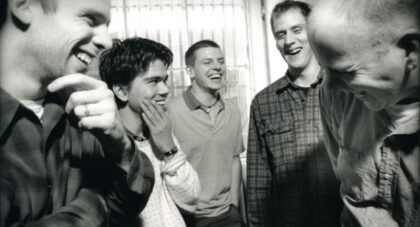When Paul Simon turned down the chance to write the theme song for Midnight Cowboy and the rights of Dylan’s "Lay Lady Lay" proved too difficult to pin down, someone suggested up-and-comer Harry Nilsson for the job. John Schlesinger liked Nilsson’s cover of Fred Neil’s "Everybody’s Talkin" on Aerial Ballet, and had even been using the song as a ‘temporary’ track around which he could edit the film. Nilsson’s cover, beautiful as it is, is still a pretty straightforward reading of the original, replicating detail after detail of Neil’s own laid back, breezy arrangement–it only really diverges in its orchestral embellishments, and of course in the coda which allowed Nilsson to show off his angelic vocals. "The Lord Must Be in New York City," the substitute theme tune Nilsson supplied tries to re-capture that same Fred Neil spirit, slyly adding lyrics that were a bit more appropriate to the film. But, as everybody now knows, it was ultimately rejected by Schlesinger. In 1968, "Everybody’s Talkin" became the iconic theme of an iconic film.
The story is instructive because it shows the way in which a sound that was integrally Fred Neil’s became disassociated from the man himself.
In 1969, Neil began collecting significant royalties for a song he penned off the cuff–and whose popularity seemed to overshadow him. No stranger to drug addiction (two of his closest protégés were Gram Parsons and David Crosby, if that means anything to you), he quickly faded into obscurity. His last album, The Other Side of this Life, was released only three years after Midnight Cowboy (as if sign-posting its own contractual obligations, the LP was padded out with alternate and live versions of his old songs). By the mid-Seventies, the Greenwich Village folkie who let an unknown Bob Dylan sit in with him, had moved permanently to Coconut Grove, Florida, playing the odd gig but devoting himself primarily to conservationism and philanthropic causes. He died, shortly before beginning treatment for skin cancer, in 2001.
Because of the enigmatic nature of Neil's biography, you can’t trace his influence as directly or in as coherent a way as you can other lynch-pins in folk-rock history–Dylan, say, or The Band. He is further back in the picture and about to fade away. Listen for him and you can certainly hear his influence everywhere. However, it’s always a ghostly thing, like the sea still echoing inside a seashell.
The first thing that usually gets commented upon is the ‘deep voice’, but what tends to be overlooked is the unique melodic sensibility that went along with it. Watch him surprise you at the end of a line by diving deeper into his register, sustaining it, making it resonate at its lowest end. The melodies soar momentarily, but they are always drifting downwards. Johnny Cash would seem an obvious touchstone--but then again, a little too obvious. Johnny Hartman had a deep voice too, after all, and Neil’s phrasing swings far more than a folk singer’s should. That said, his voice is freighted with melancholy. The waltzy sway of his arrangements (not unlike Dylan’s take on "Corrina, Corrina") are forever being off-set by that languorous, after hours croon. As a songwriter too, Neil seemed to be mining a divide between the hammock and the abyss, supplying lyrics that were as laid back as they were fatalistic: wars and dolphins, summer breezes and the shadows of everyone’s eyes.
Fred Neil :: I’ve Got a Secret (Didn't We Shake Sugaree)
And then there’s the electric guitar playing: flangey and reverb-laden, as fluid as a Floridian beachfront view; awash in major sevenths and occasional instrumental breaks (doubly distinctive as his first solo album was released right in between Bringing it All Back Home and Highway 61 Revisited). It was a sound he’d codified by his second album, the one that opens with what is today the quintessential Fred Neil composition: "The Dolphins." You will find the same sleepy jangle echoing through everything from The Byrds to Tim Buckley, from Gram Parson’s "Brass Buttons" to Joni Mitchell's "Otis and Marlena," all the way down to the watery drone of "Champagne Supernova".
Only the good shit. Aquarium Drunkard is powered by its patrons. Keep the servers humming and help us continue doing it by pledging your support.
To continue reading, become a member or log in.


